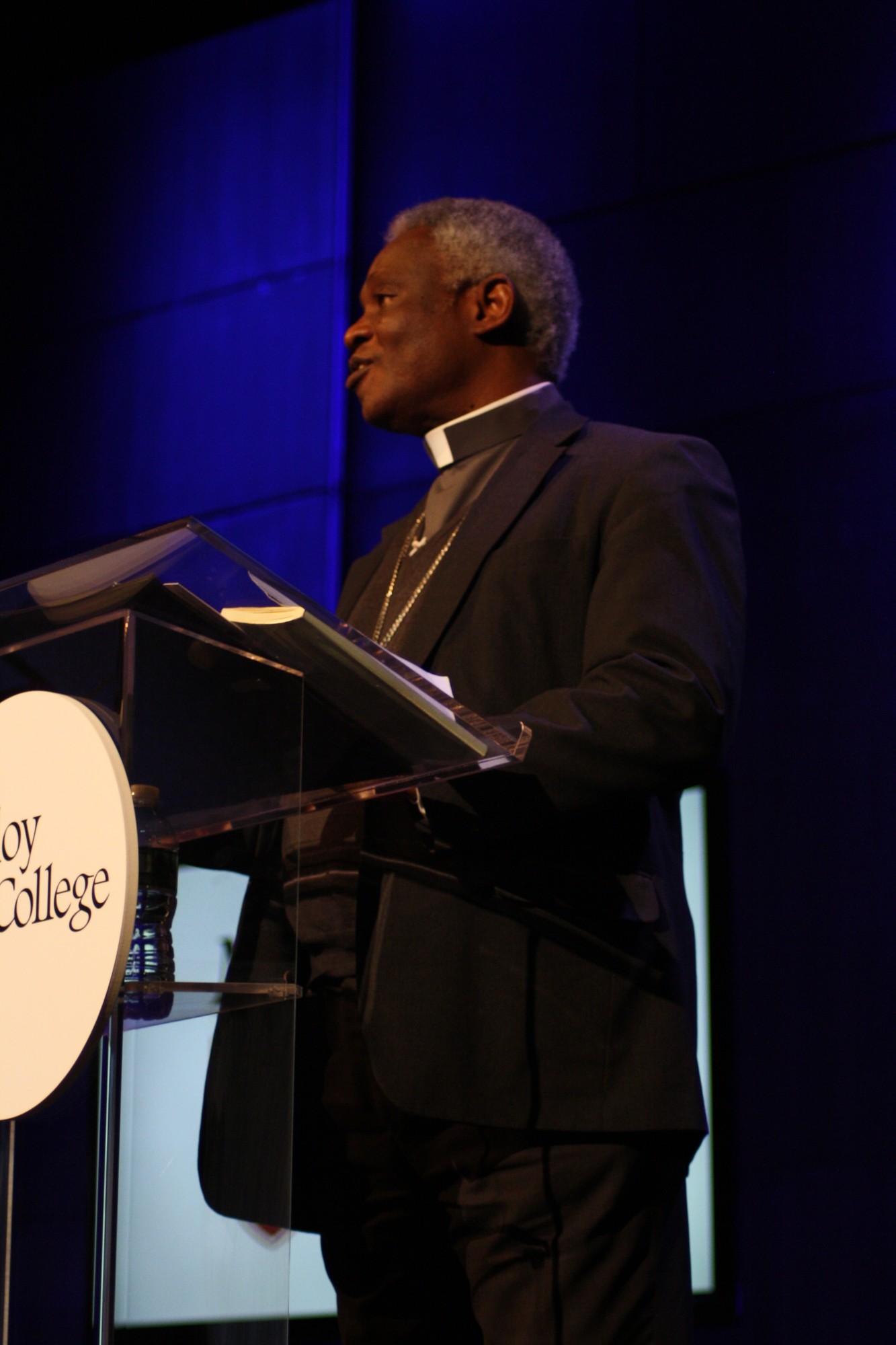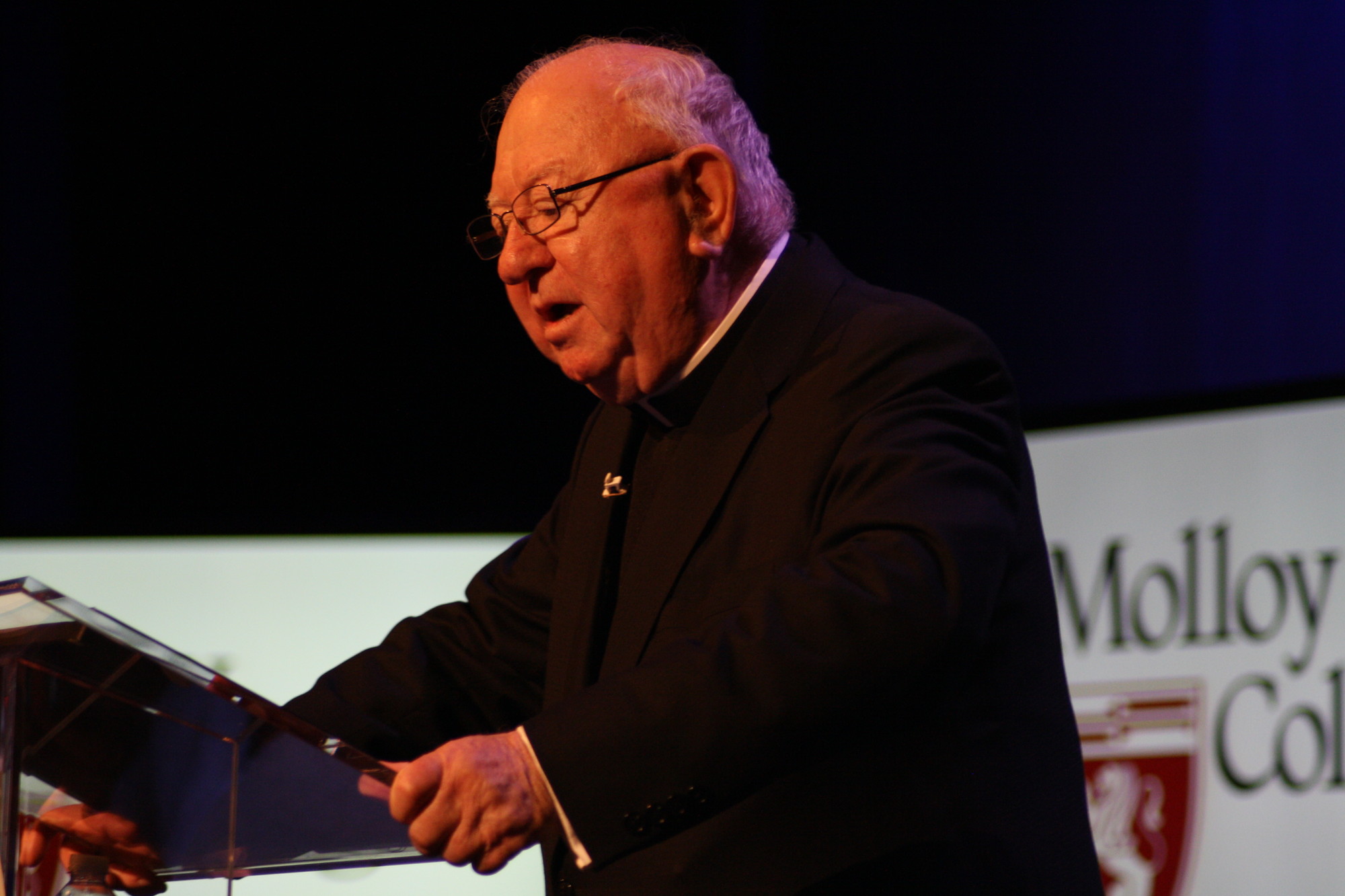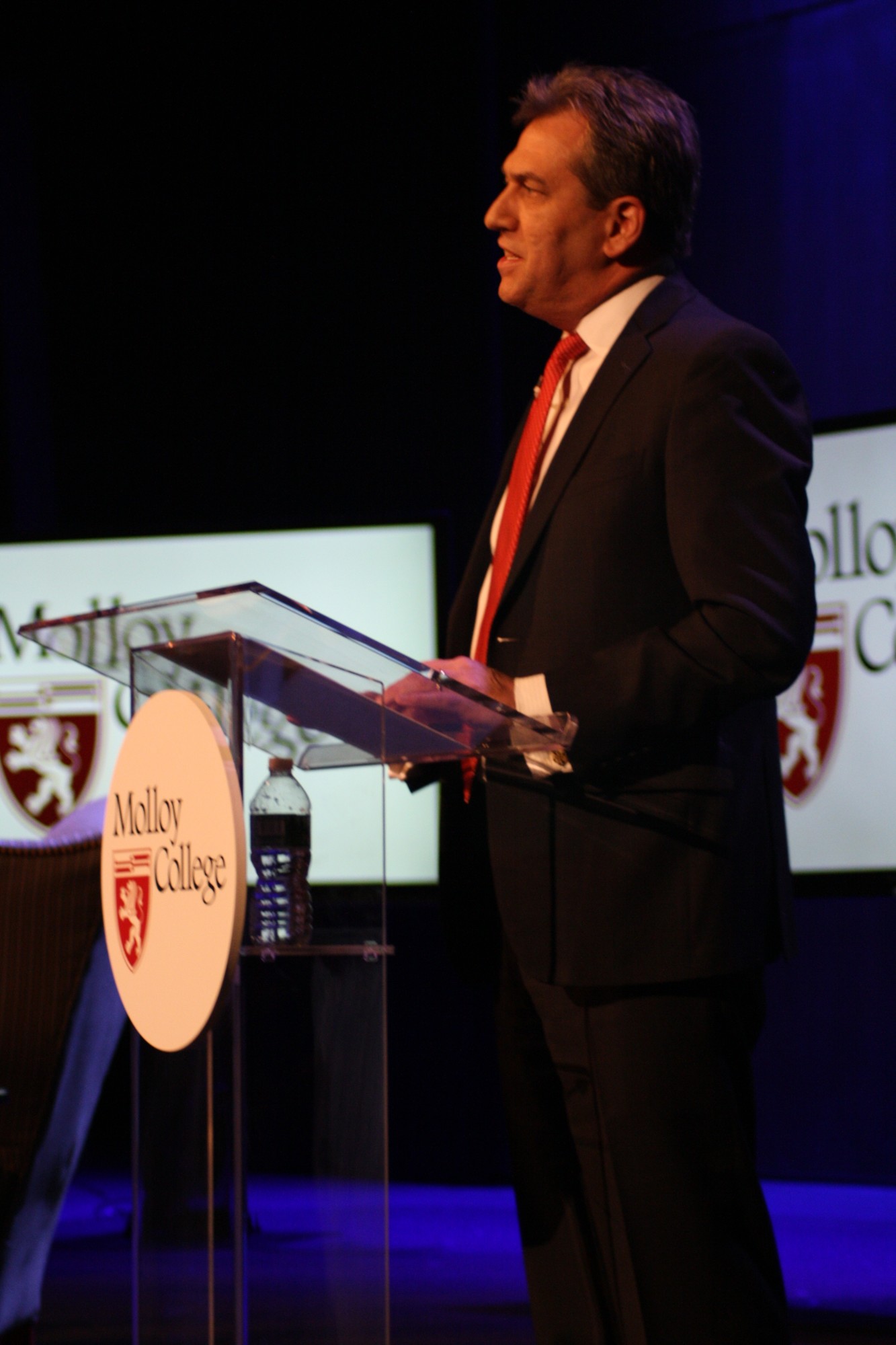Helping humanity and the earth
Molloy hosts talk on 2015 papal encyclical
Last week, Molloy College welcomed Cardinal Peter Turkson, president of the Pontifical Council for Justice and Peace, who gave a talk focusing on Pope Francis’s encyclical about the environment.
The talk, titled Catholics, Capitalism, and Climate, was the 12th Joe and Peggy Maher Leadership Forum at Molloy. Turkson spoke after introductions from Molloy President Dr. Drew Bogner and Bishop William Murphy of the Diocese of Rockville Centre. After Turkson’s address, a panel of local experts discussed the pope’s encyclical, how climate change affects the poor and what it means for Catholics.
“One of the aims of the Holy Father, as stated in this document, is ‘to entrust to social groups the task of helping people’s awareness of human and natural ecology,’” Murphy said. “What better place for this to occur than here at Molloy College, where we are gathered today? This college, founded by the Dominican Sisters of Amityville, has become a center for the study of issues of critical importance and the exchange of ideas among all the major institutions — political, social, economic and religious — across Long Island.”
Turkson came to speak about the pope’s encyclical “Laudato Si’,” or “On Care for Our Common Home.” It was a widely read document that Francis published last year about climate change and how it will affect the poor.
Turkson grew up in Ghana in the 1950s, and became a priest in 1975. In 1992 he was named archbishop of Cape Coast in Ghana.
As president of the Pontifical Council for Justice and Peace, Turkson was one of the people who helped the pope write the encyclical, so he had an intimate knowledge of it. He walked the audience through the document and what it means, and cleared up misconceptions about its aims.
“The pope has not written an encyclical on climate change,” Turkson said. “He has written a social encyclical. An encyclical which is meant to analyze the social conditions of the people and the state of the earth.”
Turkson said that, in the pope’s view, there is nothing wrong with capitalism. It can even be a good force. “God created trees. He didn’t create furniture,” said Turkson. “It is the businessman that turns the tree of creation into furniture.”
The problem with our modern systems, which “Laudato Si’” points out, Turkson said, is the exploitation of natural resources and overconsumption. “Even if we Christians at times have incorrectly interpreted a scripture, nowadays we must forcefully reject the notion that our being created in God’s image and likeness, and given dominion over everything God has created, amounts to domination and abuse of what God has created,” he said. “Dominion must not be absolute domination. Other creatures have their own dignity and their own purposes.”
He pointed to the writing of Adam Smith, the 18th-century father of modern economics, to reinforce his point and to show that the pope’s encyclical was not anti-capitalist. “The father of modern-day capitalism, Adam Smith, in his ‘Theory of Moral Sentiments,’ had expressed the fact that market participants needed to be true moral actors,” Turkson said. “And so, if the market had participants who were truly moral actors, motivated by the pursuit of virtue, as Adam Smith had written, and if trade were fair and free, they would promote healthy competition, creativity and inventiveness, and they would have the happiness and flourishing of poor people as their goal.”
The main message of Francis’s encyclical, Turkson said, was that humanity had to come together to protect not only the earth, but the poorest among us. “Francis is not anti-business,” he said. “What he decries, rather, is an obsession with profit and the deification of the market. Profit has its role in sustaining an enterprise and allowing it to improve and innovate. But Pope Francis calls upon business to lead by harnessing its creativity to solve pressing human needs. ”
Turkson’s speech, and the roundtable discussion that followed, will air on the Telecare channel on dates yet to be determined.

 45.0°,
Mostly Cloudy
45.0°,
Mostly Cloudy 









